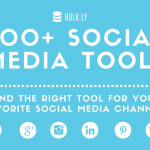Is it narcissism, or is it our need for self-validation that’s making social networking sites so popular? Are we really that addicted to social media? Experts are looking into the reasons for the rise of social networking.
Staggering use of social networking sites carries on through 2015
As of July 2015, Facebook is the most popular social networking site.
It is estimated that Facebook has 900,000,000 monthly unique active users. Twitter comes in second, with 310,000,000 monthly unique visitors. The third-ranked site is the professional networking site, Linkedin, which according to eBizMBA Rank has 255,000,000 monthly active users.
Pinterest and Google+ come in at the fourth and fifth places with 250,000,000 and 120,000,000 monthly active users respectively.
An expression of identity and social validation
One reason why Facebook, Pinterest, Instagram, and Twitter are so popular is that they give people a voice. Whereas before only celebrities, politicians, and other famous people got exposure in the media, today anyone can present themselves, their beliefs, their ideas, and their opinions using online tools.
Social networking sites also have the ability to connect us and keep us engaged with friends, family, colleagues and people we want to be friends with. They are the perfect springboard for establishing our identity, confirming our professional expertise, and sharing our hobbies, interests, and ideas.
Finding like-minded people
We don’t just network with our friends and family. We also connect with strangers, potential employers, and potential partners.
Social networking sites grant us the ability to access communities that share our interests and are passionate about the same causes as we are.
A smooth and easy way to communicate
Social networking sites are for communicating, in a different way from face to face interaction. They allow us to become informed on aspects of people, companies, news, and other things of interest in a way that’s convenient, efficient, and fast.
You cannot possibly call all your friends and family on a single day to learn about their day. But you can do so in a matter of 4 to 5 minutes by logging in on Facebook or Instagram.
Solving – or creating – the fear of missing out
Even if you’re not a daily user of Facebook, Twitter, or Instagram, the link that you have to these social networking sites almost obliges you to check in on them often.
You’re afraid you might be missing out on an important event or news, that you might be the last to know about a party in your area, or the announcement a distant relative is making on Facebook.
We want to be regarded as active social human beings and this fear of missing out is urging us to be more frequent social media users. On the other hand, using social networking sites can relieve us of the fear, making us feel more connected and up to date.
It’s free!
The most popular social networking sites are free to use. This says a lot about their popularity. People are granted these varied tools to communicate their needs, opinions, interests and expertise without having to spend any money.
Social networks won’t stop being popular. Even if some get forgotten or lose their popularity, other forms of social networking tools will come to replace them.
We are social beings, we need social interaction, and we have found an efficient way to get it through technology.
—
About the Author: Chassie Lee is the Content Expert for eReflect – creator of Typesy and Typesy EDU which is currently being used by tens of thousands of happy customers in over 110 countries.



